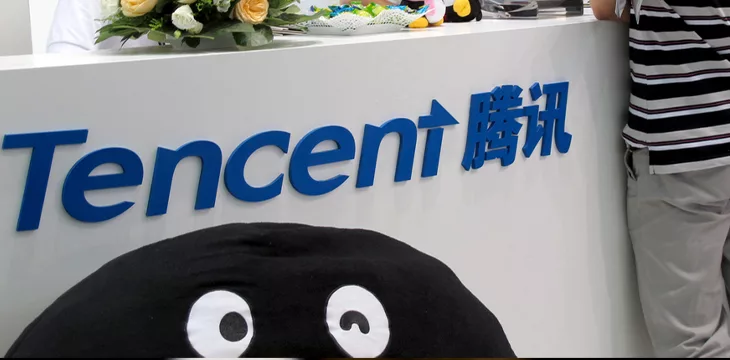|
Getting your Trinity Audio player ready...
|
Chinese technology giant Tencent (NASDAQ: TCTZF) has hinted at a pivot to artificial intelligence (AI) following a revenue decline in its gaming business amid stiff competition from rivals.
Tencent’s intended shift to AI will see it reduce its investment in its video game arm in favor of emerging technologies. Revenues from the gaming arm made up nearly one-third of Tencent’s revenue in 2023, with analysts predicting a major shift in operations.
Tencent’s CEO Pony Ma remarked in an annual company conference that the move toward AI stems from several headwinds the gaming unit faces. For one, the company’s recent games have failed to gather steam compared to titles from local rivals MiHoYo and NetEase.
“Gaming is our flagship business. But in the past year, we have faced significant challenges,” Ma said. “We have found ourselves at a loss, as our competitors continue to produce new products, leaving us feeling having achieved nothing.”
Despite falling behind the pecking order in the gaming ecosystem, Tencent’s PUBG and other successful titles kept the gaming arm afloat, contributing nearly 30% to the company’s revenue.
However, the company’s decision to explore other verticals may be connected with the general decline of the Chinese gaming market. Gaming deals in China have steadily fallen from $16.9 billion in 2018 to $158 million in 2023, forcing several Chinese companies to explore other business models.
For Tencent, the next step will be a wholesale exploration of AI in a valiant attempt to catch up with other industry first movers.
“We can finally follow the pace of the first-tier companies,” Ma said. “We don’t count ourselves as the most leading but at least we are not too behind.”
In 2023, Tencent released its generative AI model dubbed Hunyuan with functionalities similar to OpenAI’s ChatGPT. Ma shared that the company will focus on integrating Hunyuan into all aspects of its business, including improvements to WeChat and the e-commerce live streaming.
An avalanche of pivot
Several Chinese firms have signaled their intentions to ramp up their exploration of AI, with Alibaba shutting down its quantum computing arm in favor of machine learning in November.
“Over the next decade, the most significant change agent will be disruptions brought about by AI across all sectors,” Alibaba CEO Eddie Wu said. “If we don’t keep up with the changes of the AI era, we will be displaced.”
Chinese authorities have since upped their interest in the emerging sector with new watertight regulations and a pledge to crack down on misuse. The Network Security Bureau disclosed in 2023 that it will increase its supervision of deepfake AI, Web3, and cloud computing technologies to protect consumers from bad actors.
In order for artificial intelligence (AI) to work right within the law and thrive in the face of growing challenges, it needs to integrate an enterprise blockchain system that ensures data input quality and ownership—allowing it to keep data safe while also guaranteeing the immutability of data. Check out CoinGeek’s coverage on this emerging tech to learn more why Enterprise blockchain will be the backbone of AI.
Watch: AI truly is not generative, it’s synthetic

 03-05-2026
03-05-2026 




